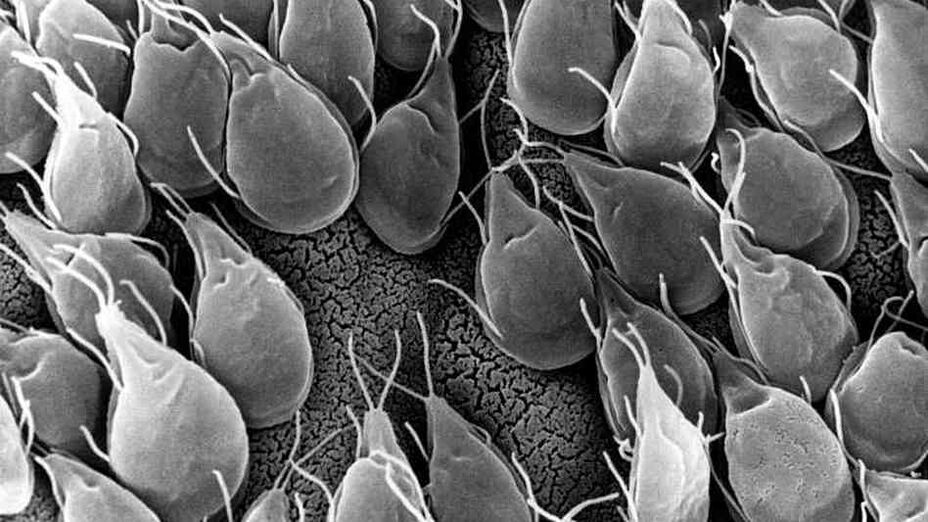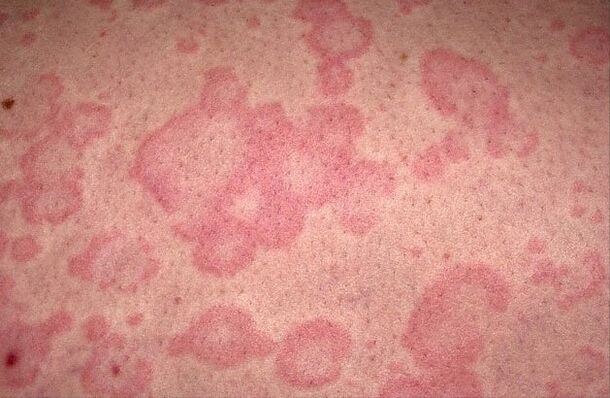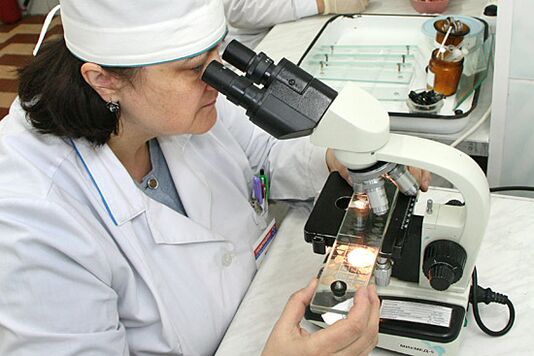During their life, parasites release large amounts of toxins. These substances are the strongest allergens. When the parasite is present in the body, a person can experience itching, hives, and a rash.
The excrement of various parasites is believed to be the most powerful allergen. The risk of anaphylactic shock is high if the patient is allergic to dust, wormwood, pets.
If any allergic reaction occurs, a person should be treated with complex medication. It is produced using a new generation of antihistamines. Even drug treatments are supplemented with immunomodulators, insect repellants, and multivitamins.
Which parasites cause allergies

Allergies and parasites are closely related. Giardia is the most common cause of allergic reactions in humans. These worms belong to the class of protozoa. Giardia enters the body with poorly processed foods.
If another person comes into contact with a parasite carrier, he may become infected. The most common carriers of Giardia are insects and cockroaches. Also, if a person eats raw fish, they can become infected with Lyabmlia.
Different types of worms can also cause allergies. These include Ascaris, Trichuris, Toxoplasma, Toxoplasma and Echinococcus. If a person eats poorly processed meat or fish, these parasites can enter the body. In addition, worm infestations can be caused by non-compliance with hygiene regulations and the use of raw eggs.
Doctors say that if a person is allergic, the parasite has already started to multiply. Allergy symptoms may not appear immediately after the invasion. The severity of the clinical presentation will depend on the location of the parasite. For example, if the parasite colonizes the gut, bronchi, or pancreas, the intensity of the allergic reaction increases.
Allergy-causing parasites can lead to decreased immunity. This is because the products of their vital activities are carried throughout the body along with the blood. Parasites often cause secondary infections and autoimmune diseases.
Research has found that when the parasite is present in the gastrointestinal tract, the production of certain enzymes is inhibited.
As a result, a person develops an immune deficiency. In this case, an allergic reaction can even accompany hair loss.
How allergies manifest in parasitic diseases
What are the symptoms of a parasitic infection? Helminth allergy can manifest in different ways. Everything depends on the type of worm and the individual characteristics of the person.
Allergies to parasites manifest in the same way as allergies to wormwood, pets, or medications, doctors say. The first signs of an allergic reaction:
- eczema.
- itching. It can be episodic, i. e. disappear from time to time.
- Skin flaking. Often the skin of the face or extremities is peeled.
- puffiness. This symptom occurs when a person has a tendency to develop an allergic reaction.

With premature resolution of the allergy, the patient develops bronchospasm. It poses a serious threat to life. If you don't provide emergency assistance to a person, he may suffocate to death.
Eczema, itching, and other signs of allergic reactions may disappear over time. In addition to these symptoms, a person can lose weight dramatically. Conversely, some types of worms, such as Giardia, can cause excess weight.
Even with an allergic reaction, a person can have an unpleasant smell in their mouth. This suggests that the parasite contributes to the development of digestive tract disease. It is likely that the pH in the stomach has changed. If emergency measures are not taken, the patient may develop chronic gastritis or diabetes.
If the patient cannot tolerate wormwood and other allergens, the intensity of the clinical manifestations increases significantly as the worms invade. In this case, a severe allergic reaction occurs, accompanied by the following symptoms:
- Chills. It is accompanied by general malaise. Often, patients feel sleepy and lethargic.
- Elevated body temperature. As a severe allergic reaction develops, the body temperature rises to 40 degrees.
- revel. It manifests as indigestion. Patients usually experience vomiting, diarrhea, or nausea. These symptoms are accompanied by paroxysmal pains of the nature of abdominal cutting.
- Red rash. It covers the entire skin surface.
If you don't stop a strong allergic reaction, the patient will have an asthma attack. The potential for various side effects is also high. It has been established that the risk of chronic allergy progression increases significantly as worms invade.
In addition, there is the potential to develop autoimmune and neurological disorders.
Allergy diagnosis and treatment

If symptoms of a worm infestation appear, a full inspection is recommended. Initially, you should pass a stool test. If parasites are detected in the stool, the doctor will immediately choose the appropriate medication.
Sometimes larvae are not found in the feces. In this case, the patient will need general blood tests. With its help, it is easier to diagnose diseases. If a person has parasites, then as a result of the test, an increased number of eosinophils and an accelerated ESR are detected. If necessary, diagnostic measures can be supplemented by ultrasound and X-ray examination.
After that, the doctor must familiarize himself with the patient's medical history and choose the appropriate medication. Initially, symptomatic treatment is administered. The allergic reaction needs to be stopped. To get rid of allergies, you can use antihistamines.
The period for collecting such funds is 1 to 14 days. If necessary, repeat the treatment process.
After the parasites are removed from the body, a person is prescribed immunomodulatory drugs and a multivitamin complex. They are needed to minimize the risk of disease recurrence and to strengthen the immune system.

















